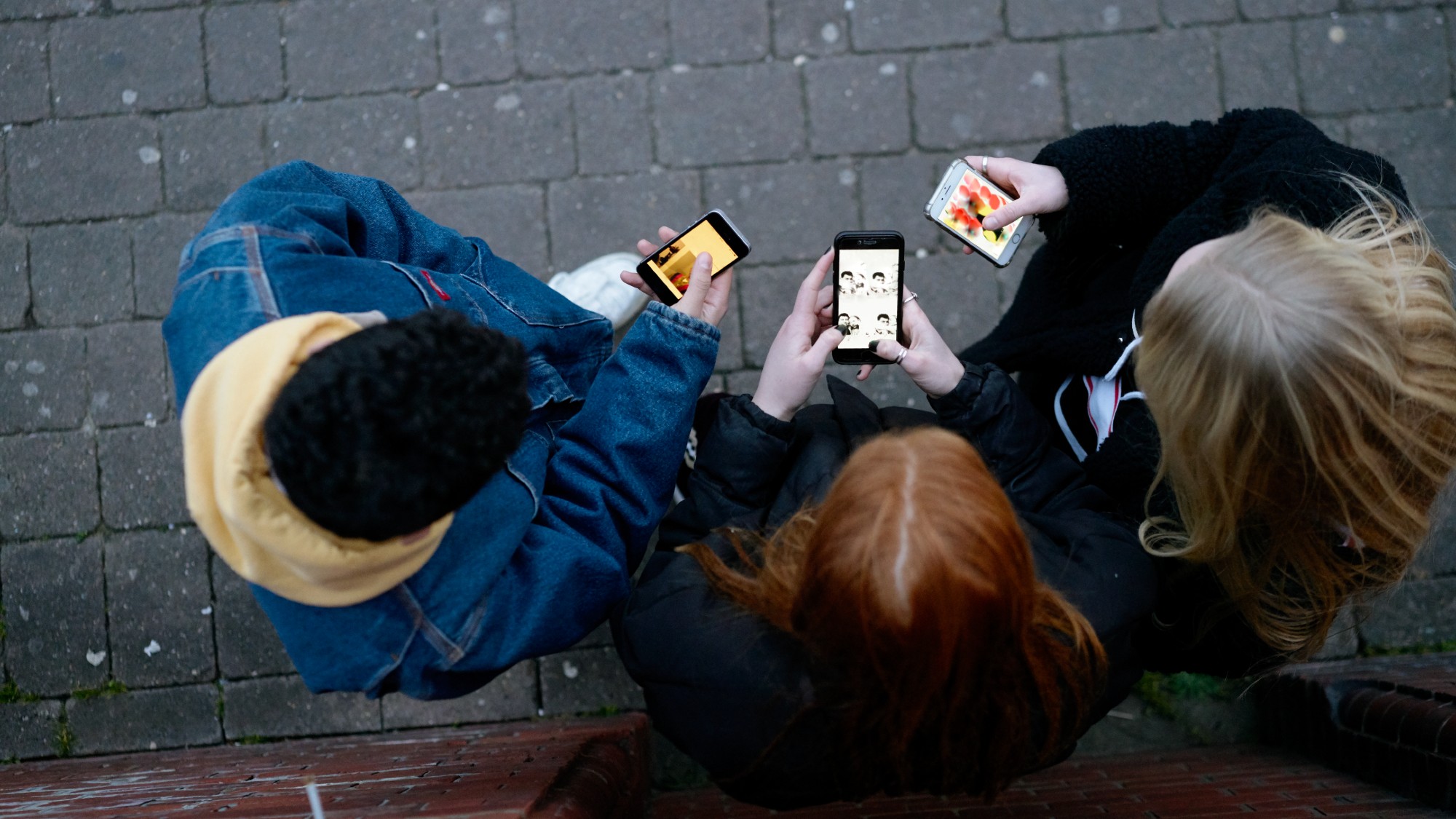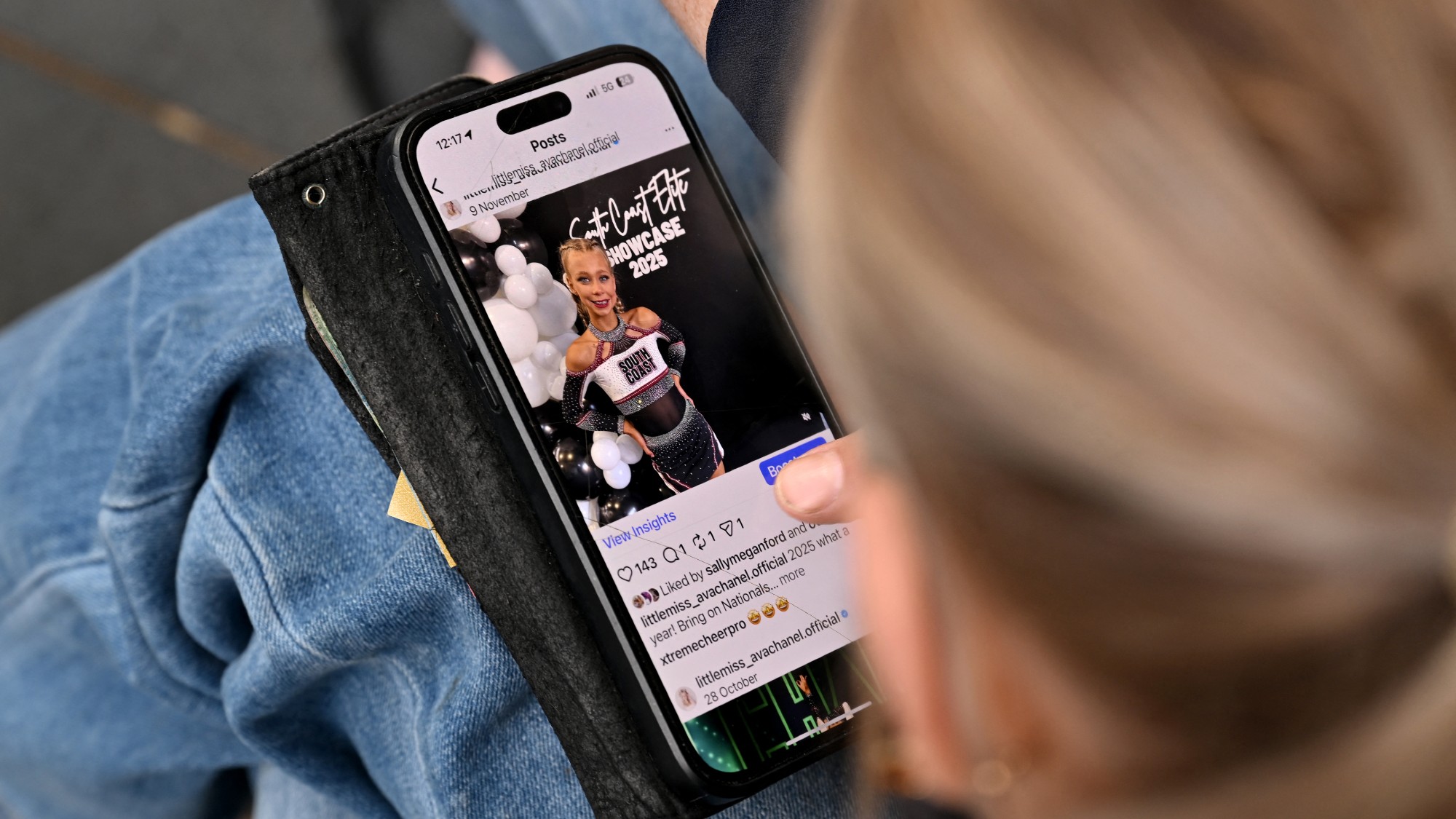Do smartphone bans in schools work?
Trials in UK, New Zealand, France and the US found prohibition may be only part of the solution

A free daily email with the biggest news stories of the day – and the best features from TheWeek.com
You are now subscribed
Your newsletter sign-up was successful
It's over a year since St Albans, Hertfordshire, announced its plan to become the first British city to go smartphone-free for children under 14. Schools there have led the way, prohibiting smartphone use during class time, but also urging families to "delay" buying devices for their children, said The Guardian.
Ofcom, the UK online safety regulator, estimates that 96% of the UK's 12- to 15-year-olds now have their own phone, and there is a growing debate around whether children should be stopped from having smartphones altogether, or even blocked from social media as they are in Australia.
What is the rationale behind a ban?
While restrictions vary widely from country to country and even from school to school, the "guiding principle everywhere has been to help students do better in school", said academics Cara Swit, Aaron Hapuku, Helena Cook and Jennifer Smith in The Conversation.
The Week
Escape your echo chamber. Get the facts behind the news, plus analysis from multiple perspectives.

Sign up for The Week's Free Newsletters
From our morning news briefing to a weekly Good News Newsletter, get the best of The Week delivered directly to your inbox.
From our morning news briefing to a weekly Good News Newsletter, get the best of The Week delivered directly to your inbox.
One obvious reason to restrict smartphone use in schools is improving concentration during class and reducing distractions – 72% of US high-school teachers say phone use is a "major problem", according to Pew Research Center – but another primary focus has been on improving mental health among young people. Studies in recent years have found a global increase in adolescent loneliness, a rise in feelings of hopelessness among American high-school students between 2009 and 2019, and a link between time spent on social media and "lower life satisfaction" for some children, reported Nature Communications.
It is "tempting to connect these trends with the increased availability of smartphones, but establishing a causal connection is difficult", said The Economist.
Have bans been tried before?
Bans on smartphones in schools have been trialled in schools around the world, including in parts of the UK, New Zealand, Australia, France, Italy, China and the US.
France was one of the first countries to prohibit smartphone use in primary or secondary schools in 2018, claiming that it would help children focus, reduce their social media use and mitigate online bullying.
A free daily email with the biggest news stories of the day – and the best features from TheWeek.com
What were the results?
Studies have shown that bans "often don't work as planned", said Swit, Hapuku, Cook and Smith. One year after New Zealand's ban came into effect, they spoke to students in 20 schools across the country to see if it had been a success or failure. Many had "mixed feelings" about the bans, with some saying it improved their focus, but others reporting stress from being separated from the phones, including anxiety about being unable to contact their parents during the day.
Earlier this year, academics from the University of Birmingham, Harvard, and universities in Brazil and Sweden published a first-of-its-kind study in The Lancet Regional Health Europe Journal, analysing the impacts of smartphone policies in 30 English secondary schools. It found no link between banning phones in schools and pupils getting higher grades or having better mental well-being. However, that may be because school-only bans did not have enough impact on overall phone time: the study found that children attending schools with no-phone policies were online as much as their peers during evenings and weekends.
Could a different approach work?
"If bans alone are not enough, what else do we need to do?" Dr Victoria Goodyear, who co-authored the Lancet study, said in The Independent. "We need to equip children for healthy technology use. There are two key ways: firstly an age-appropriate design, and secondly equipping children with digital skills".
Research from the Digital Wellness Lab supports this balanced approach, emphasising skill building over restriction.
"If schools really want to support students, they need to move beyond one-size-fits-all rules," said Swit, Hapuku, Cook and Smith. That means "helping young people to use technology safely and responsibly".
-
 Political cartoons for February 15
Political cartoons for February 15Cartoons Sunday's political cartoons include political ventriloquism, Europe in the middle, and more
-
 The broken water companies failing England and Wales
The broken water companies failing England and WalesExplainer With rising bills, deteriorating river health and a lack of investment, regulators face an uphill battle to stabilise the industry
-
 A thrilling foodie city in northern Japan
A thrilling foodie city in northern JapanThe Week Recommends The food scene here is ‘unspoilt’ and ‘fun’
-
 Is a social media ban for teens the answer?
Is a social media ban for teens the answer?Talking Point Australia is leading the charge in banning social media for people under 16 — but there is lingering doubt as to the efficacy of such laws
-
 How Utah became a media focal point
How Utah became a media focal pointIn Depth In producing the stars of #MomTok and reality TV alike, Utah has emerged as a media powerhouse
-
 Is convenience culture killing community?
Is convenience culture killing community?In The Spotlight A decline in emotional intelligence could be responsible for a diminished sense of belonging
-
 Australia’s teens brace for social media ban
Australia’s teens brace for social media banIn The Spotlight Under-16s will be banned from having accounts on major platforms
-
 How AI chatbots are ending marriages
How AI chatbots are ending marriagesUnder The Radar When one partner forms an intimate bond with AI it can all end in tears
-
 Are boomers the real phone addicts?
Are boomers the real phone addicts?In The Spotlight There’s an ‘explosion in screentime’ among older people – and they’re more vulnerable to misinformation
-
 The six-seven meme that has taken over the world
The six-seven meme that has taken over the worldIn the Spotlight With roots in rap and basketball, the phrase has young people obsessed, and it could be here to stay
-
 BookTok is reviving publishing – but at what cost?
BookTok is reviving publishing – but at what cost?In The Spotlight Social media recommendations are boosting book sales but critics give the trend mixed reviews